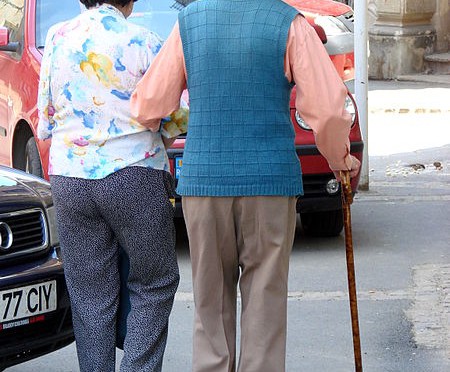Sarcopenia is defined by the loss of skeletal muscle mass and quality of strength with aging, and is associated with frailty in older adults.
![Photo By Adam Jones Adam63 (Own work) [CC BY-SA 3.0 (http://creativecommons.org/licenses/by-sa/3.0)], via Wikimedia Commons](http://french-paradox.net/wp-content/uploads/2015/01/Elderly_Couple_-french-paradox-225x300.jpg)
A new study, very similar to another recent study on the effect of diet on frailty in older Spanish adults, looked at adherence to different diets on prevalence of sarcopenia in older Iranian adults.
300 Iranian adults aged 55 and older were randomly selected for this study, and were instructed to complete questionnaires related to dietary habits and patterns. Prevalence of sarcopenia was determined for each participant and compared to their responses on the dietary pattern questionnaires.
Important Findings:
- Participants with the greatest adherence to a Mediterranean-style diet had the lowest odds of having sarcopenia.
- Participants with the worst adherence to a Mediterranean-style diet had the greatest odds of having sarcopenia.
- Participants consuming a primarily Western diet (i.e. high consumption of sugars, soy, and fast foods) were not associated with having sarcopenia.
- Participants consuming a “mixed” diet (i.e. no strong adherence to one particular diet or another) were not associated with having sarcopenia.
The results of this study indicate that older Iranian adults with a
![Photo By Adam Jones from Kelowna, BC, Canada [CC BY-SA 2.0 (http://creativecommons.org/licenses/by-sa/2.0)], via Wikimedia Commons](http://french-paradox.net/wp-content/uploads/2015/01/Elderly_Man_Reading_Iran_French_Paradox-225x300.jpg)
These results are in agreement with many other studies examining the effect of diet on frailty and/or sarcopenia risk in older adults, including a recent study highlighted here on The French Paradox.
Source:

